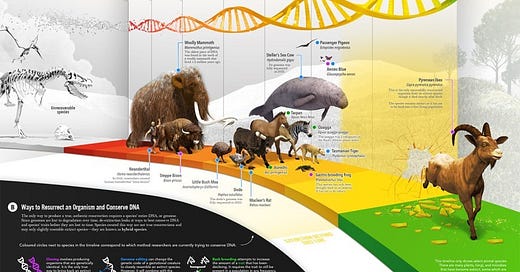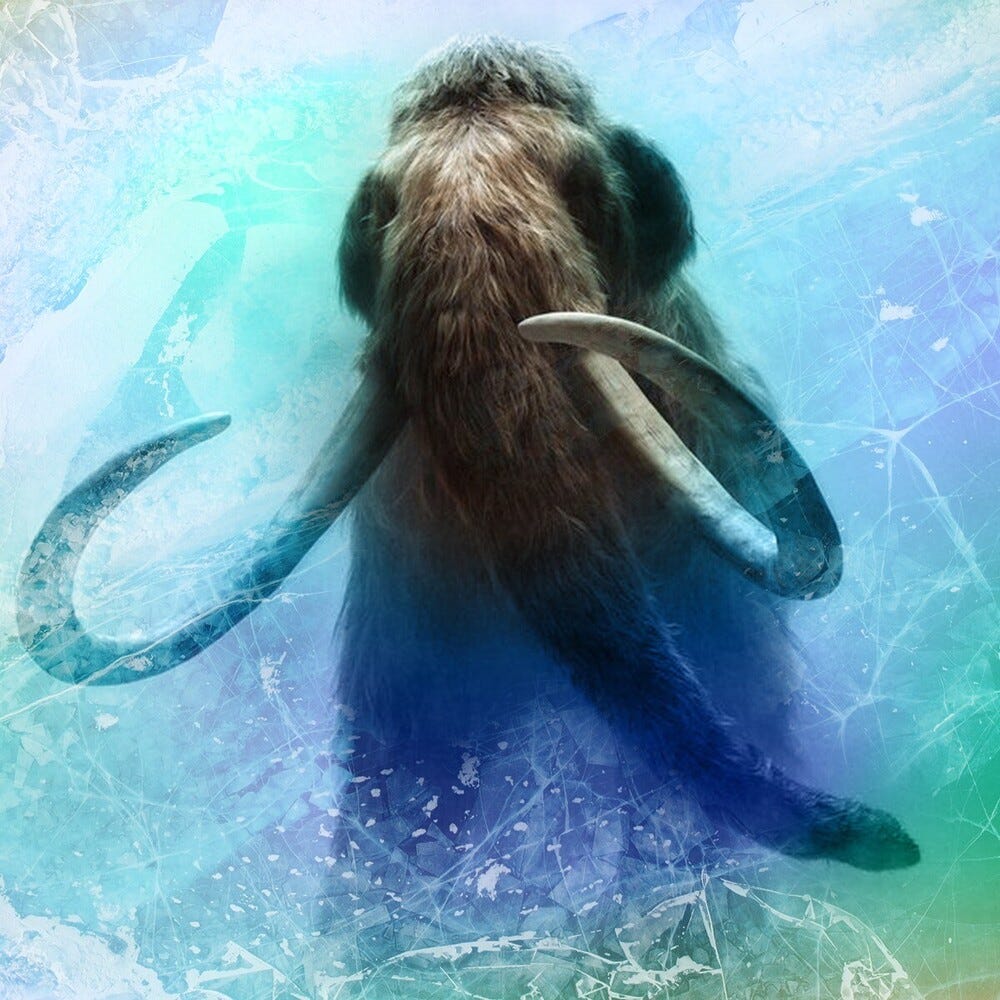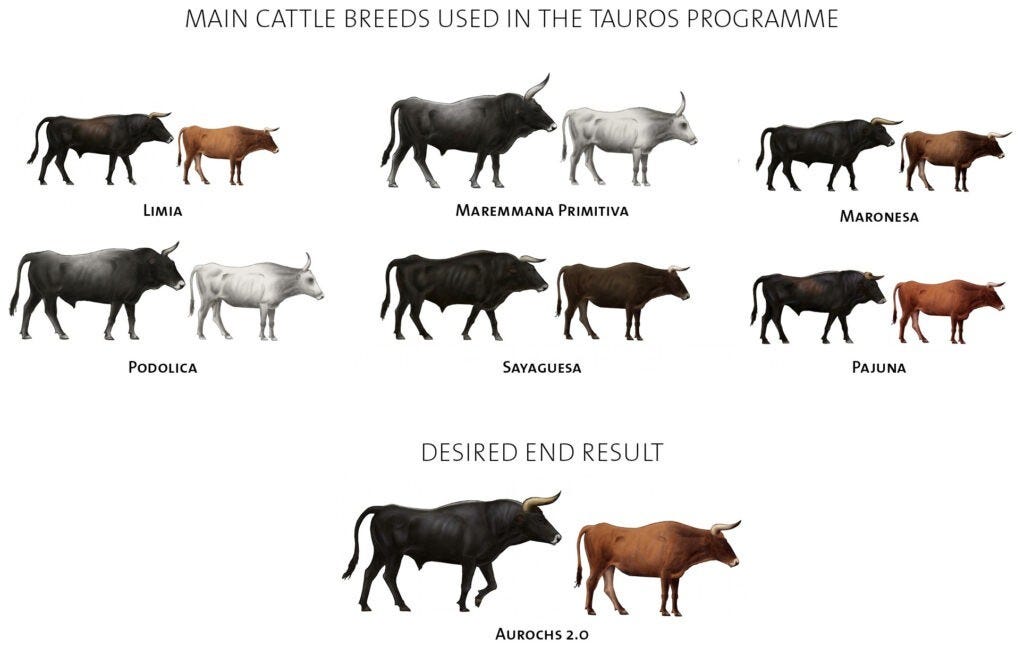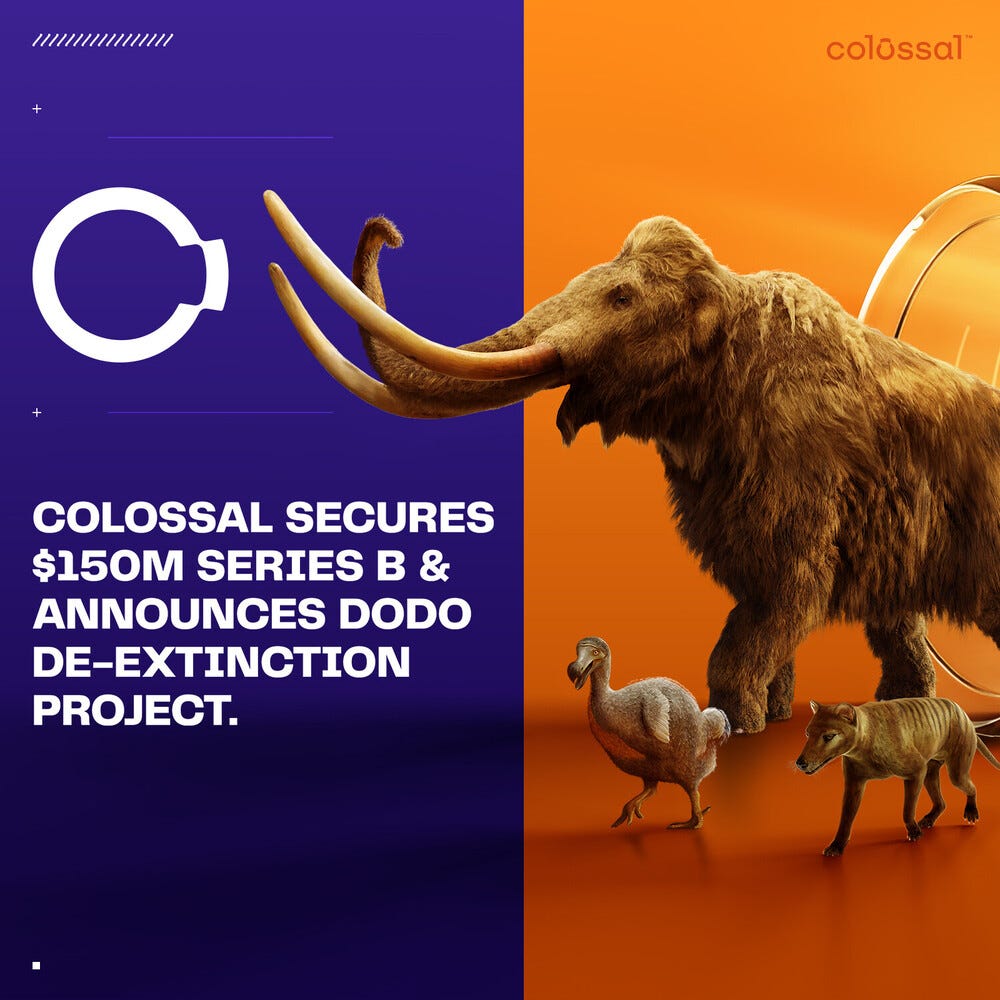A species is here, and then it isn't. For whatever reason, it goes extinct. According to Wikipedia "More than 99% of all species that ever lived on Earth, amounting to over five billion species, are estimated to have died out." Let that sink in. Now, what if you could bring them back? Would you? Should you? How would you choose? And what be the undoubtedly many implications?
Among the better knowns among those billions that have come before us and have vanished into history are the mammoth, the saber-toothed tiger, the dodo, the ground sloth, the Tasmanian tiger or wolf (thylacine), and the dinosaur, of course. One cannot help but to instantly think Jurassic Park thoughts, right?
Why would we bring an extinct species back? Because we feel responsible for its demise? Because we want to learn from our mistakes? Because we want to give it another chance? Because we think it might be valuable for a more biodiversity-rich environment? But oh, the implications! Ecologically, practically, ethically - was Stephen Spielberg's Jurassic Park just a movie? Was Marie Shelley's Frankenstein just a novel? Or were they cautionary tales?
The return of the aurochs
Let me begin this excursion with something similar, but distinctly different, from de-extincting: back-breeding. It is something I have zero qualms about. In prehistoric times, the aurochs was a magnificently large cattle species that was hunted to extinction by our lovely species. The last herd was known to be in Poland in the 16th century and the last known aurochs records point to early 18th century Bulgaria. A sad ending for a species that was revered around the world, that had symbolized power and potency that had been depicted on famous cave wall paintings, that was associated with earliest epics, that decorated Babylon's Ishtar Gate!
In the 1920s the first efforts to back-breed the aurochs began in Germany. The breeding program continued, a cross-breeding with cattle species that each contain a bit of the aurochs ... over time the Tauros Program was born. This program produces a cattle that is fairly close to what the aurochs must have been like. But none of this involves using DNA from the extinct species. It is a cross-breeding effort akin to the cross-breeding of dogs, really - except that that Tauros, once released and roaming in substantial herds, will have a sizeable impact on creating a far better, healthier, more biodiversity-rich environment. Learn all about the project here.
The return of the woolly mammoth?
I think it's a whole different ballgame when you go from cross-breeding/back-breeding to taking the DNA of an extinct species and recreating it in a lab. Biotech and genetic engineering company Colossal Biosciences famously works on de-extincting the mammoth, the dodo and the Tasmanian tiger. Turns out that the Asian elephant shares 99.6% of the woolly mammoth's DNA - so, it really seems a small step, right? Add a few mammoth genes et voilà! Mind you, it isn't strictly de-extincting - it's more like creating something new. And the plan is to create that 'new woolly mammoth' by 2027. How do you feel about that?
By the way, Colossal does a pretty good job at promoting itself, highlighting that its efforts also focus on conservation issues - and there's no doubt that Colossal's work could do a great deal to eradicate certain illnesses - and surely also to inject fresh genes when a species is in danger of inbreeding.
One can imagine a future where the new woolly mammoth roams the northern hemisphere again, giving tundra landscapes new life, bring back rich biodiversity. Quite an amazing keystone species that might do wonders ... in theory. But what would really happen? What about unforeseen consequences? What about Jeff Goldblum's or Mary Shelley's warnings?

The slippery road of good intentions
Personally, I'd vote against walking that path that is undoubtedly paved with good intentions and just as undoubtedly slippery. If you start de-extincting, where do you draw the line? Who gets to say? What's considered worth de-extincting, what isn't? As always, money would decide. The slippery slope - as ludicrous as this may seem to you right now - leads to some billionaire wanting his very own saber-tooth tiger. Just one ludicrous example - and here's another: It would lead to someone de-extincting a long-vanished creature just so that some people could pay millions to enjoy it as the rarest of meals.
Again, I know how ludicrous this seems. But I've been around long enough to know that anything we can think that human beings might be capable of doing, somewhere someone is already doing it - or working on doing it. There is nothing our species won't do. There is nothing we can imagine, all the best and all the worst, that our species will not explore. Thus, I'm convinced that opening the de-extinction door won't lead to good outcomes (mildly put).
Gene technology is an amazing field and it should be fully in the service of helping the existing world thrive. Period. If it helps save a species from extinction, brilliant. If it creates vaccines, fantastic. That's what the focus should be - the living world.
If a species has gone extinct - well, then that happened and if we were the cause of it, we need to live with it, learn from it, and do better going forward. What we should not do is spend gazillions on trying to undo our mistakes. Mistakes, on a fundamental level, are crucial for our species. That's how we learn, that's how we get better, that's how we progress. If we can undo our mistakes - why bother learning, why bother trying to do better, be better, going forward. Like I said, slippery slope.
If it were up to me, I'd take those gazillions spent on de-extinction efforts and would apply them fully to restoring, rewilding and protecting the existing world.
Cheers, D
A few more reads on the subject:
The case against species revival (National Geographic)
The case against de-extinction: it's a fascinating but dumb idea (Stanford University)
De-extinction probably isn't worth it (Science News)
Bringing extinct species back from the dead could hurt - not help - conservation efforts (Science)
'Fairytale science': Rather than reviving an extinct species, stop killing them off (USA Today)









